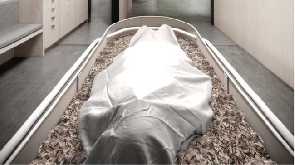An 80-year-old man from Tongo in the Talensi district of the Upper East Region died from Cerebro Spinal Meningitis (CSM) at the regional hospital in Bolgatanga, the regional capital, while two others are receiving treatment for the same disease at the facility.
Dr.Josephat Nyuzaghl, the Upper East Regional Deputy Director in charge of Public Health, who confirmed the death to the Ghana News Agency (GNA) on Tuesday after he led a team from his outfit to assess the situation, said: “So far we have two cases that are currently on admission, unfortunately, one passed on yesterday, an 80-year-old man and that was a confirmed case of meningitis.”
He disclosed that there was a 10-year-old girl referred from the Sandema District Hospital to the Regional Hospital on account of CSM, and was responding to treatment. “There was a third case, but that person was discharged yesterday,” he said.
“This morning we have two cases on admission, and I want to assure the general public that the information that a lot of people are dying from meningitis from the Regional Hospital is not true.”
Dr Nyuzaghl said, “As a Region, we know that we are in the meningitis season and we have been preparing from the beginning of the year to put our house in order so that we are in the position to respond if there is an outbreak.”
He said so far, no District had reached the alert phase of meningitis, and explained that “When we say alert, for a population of between 30,000 and 100,000 people, if you are seeing up to five cases per week, then you have reached the alert phase.”
The Deputy Director said ‘alert’ was to draw the attention of the health system to intervene, and emphasized that no District in the Region had reached that stage.
He said as part of preparations to handle any outbreak, the Ghana Health Service (GHS) in the Region had sent alerts to all Districts so that they would know the case definitions that would be used to identify CSM cases.
According to Dr Nyuzaghl, health professionals were also well prepared to take Cerebro Spinal fluid for laboratory investigations and confirmation and said the GHS had created awareness in the media, and through sensitization programmes in various communities.
“We want people to know what the signs and symptoms are so that if you have those symptoms, the first thing to do is to report to the health facility, so that you are assessed properly, and if indeed you have meningitis, the treatment can be initiated early”.
He entreated members of the public to sleep in well-ventilated rooms, drink plenty water and report immediately to any health facility if they had severe headache, stiffness of neck, vomiting, muscle pain and fever among others.
Regional News of Wednesday, 4 March 2020
Source: GNA













